Coronavirus Outbreak: How prepared are our ASHA workers?
In India, ASHA workers, the frontline health workers, are going door-to-door to spread awareness about Coronavirus. But how safe are they, considering they have not been provided with masks or sanitizers
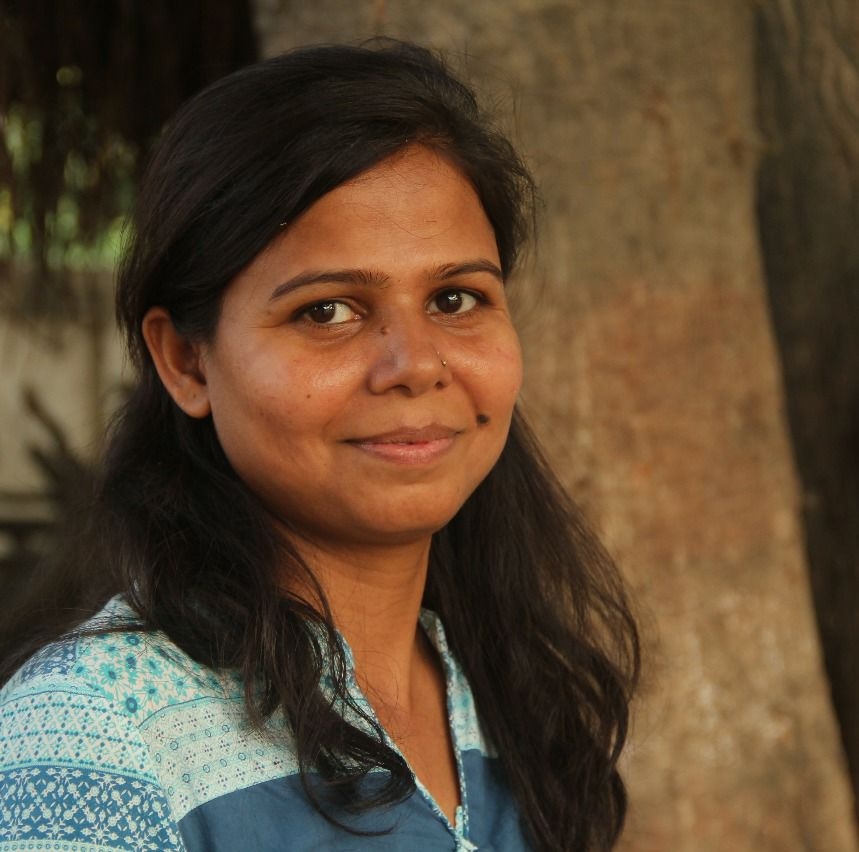
“I am scared to step out of the house but then what can I do? If you are on duty, you have to go,” said ASHA worker Radhika Devi, 40, who is unusually busy these days. As part of her daily routine, she has to go door-to-door advising villagers to stay at home and maintain cleanliness. She is doing all this without wearing any mask, or covering her face or using a sanitizer.
In Italy, 13 doctors, who were treating Coronavirus-positive patients, have lost their lives. In India, ASHA workers — the frontline soldiers of the rural health service — are going door-to-door to spread awareness about Coronavirus. But how safe are they, considering they have not been provided with masks or sanitizers.
Radhika is a member of an important unit of rural health and the fear of Coronavirus is written largely upon Radhika’s face. When the entire nation is locked up in the houses and people are taking all the necessary precautions for safety, more than one million Accredited Social Health Activist (ASHA) workers, like Radhika, are going door-to-door to identify patients who are suffering from cough, cold, fever and sore throat and to bring them to the Primary Health Centers (PHCs) and Community Health Centers (CHCs). Such patients are immediately taken to hospitals so that the spread of the disease may be curbed.
“I am scared to go door to door. We are not getting masks and sanitizers in the market. Where do we buy them from? Nothing has been provided by the hospital. Only the doctor wears one in the hospital,” said Radhika, who is an ASHA worker from Narasimha Kheda village, Mall block, about 40 kms away from Lucknow, Uttar Pradesh. She was wearing her uniform — a cream-coloured, maroon bordered saree. At 1:30 pm, she was riding pillion on her husband’s bicycle to reach Narasimha Kheda village, about two kms from her village.
The Coronavirus has so far claimed the lives of about 14,000 people across the globe. More than 3.5 lakh have tested positive for the disease. The World Health Organization (WHO) has declared it a pandemic.
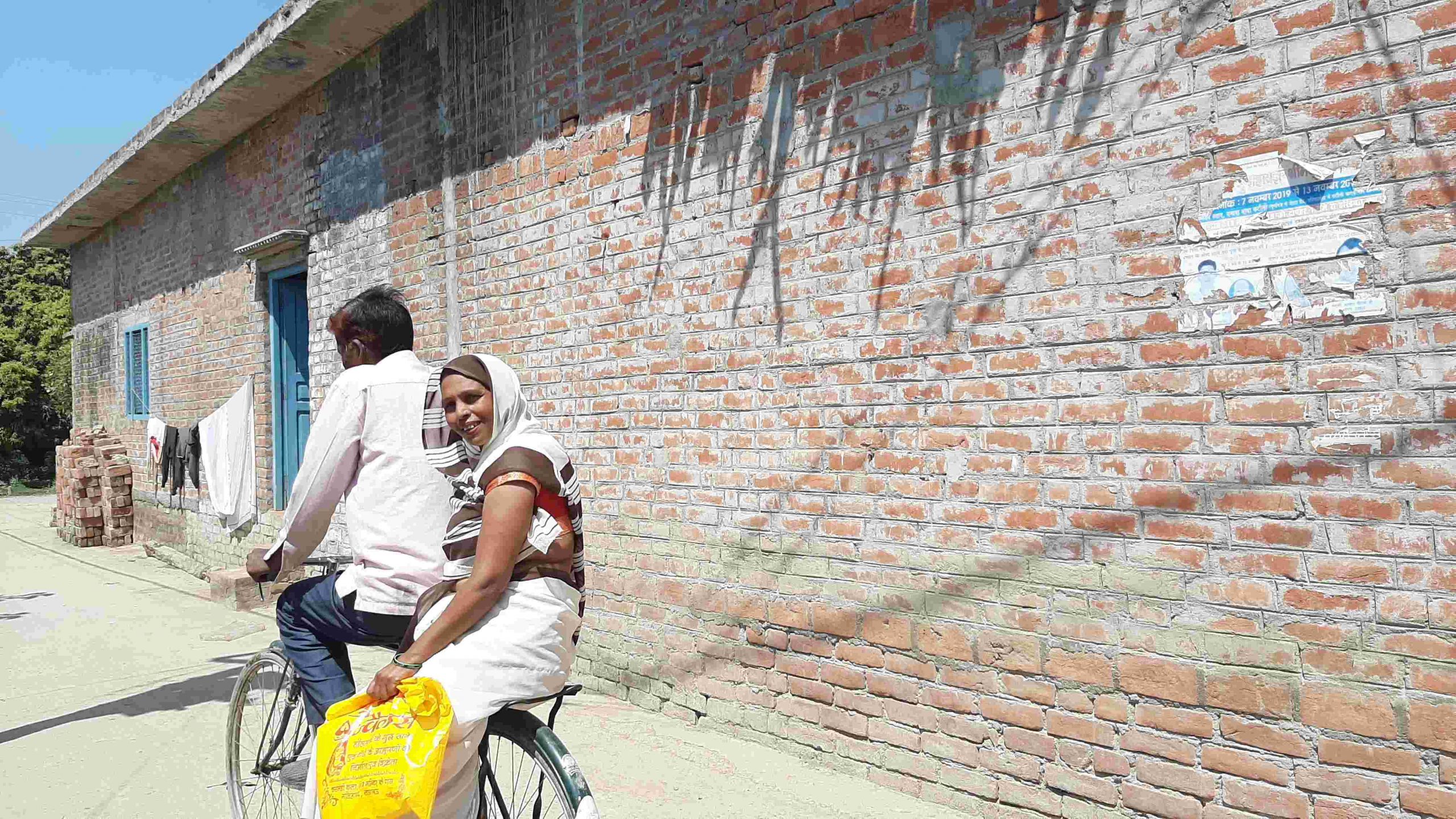
Despite the increasing number of patients and deaths, no safety arrangements have been made available for ASHA workers, the frontline worker of the country’s health department. They are the backbone of the rural health system.
The National Rural Health Mission (NRHM) had created the post of ASHA worker in 2005 to take care of the health of rural women and children. It is the responsibility of the ASHAs to take care of pregnant women and newborns. It is also their responsibility to deliver basic first aid facilities from door to door. Usually, there are 1,000 to 2,500 ASHA workers in a district. As per the data of the National Rural Health Mission (NRHM), as on September 2018, there were around 10.5 lakh ASHA workers in the country.
Gaon Connection sought to talk to some ASHA workers and the concerned officials posted in Uttar Pradesh, Madhya Pradesh and Jharkhand to find out what kind of safety arrangements have been made for them by the health department.
Vivek Nawal Mishra, the block community process manager of Radhika’s block, informed: “Currently, masks and sanitizers are not available in the market, so we have asked ASHA sisters to cover their mouths with dupattas. There are 170 ASHA sisters in this block. At present, patients are coming to the hospital with their help.” He was talking about patients who are a little sick but do not want to come to the hospital. ASHA workers are helping to send such patients to the community health centers.
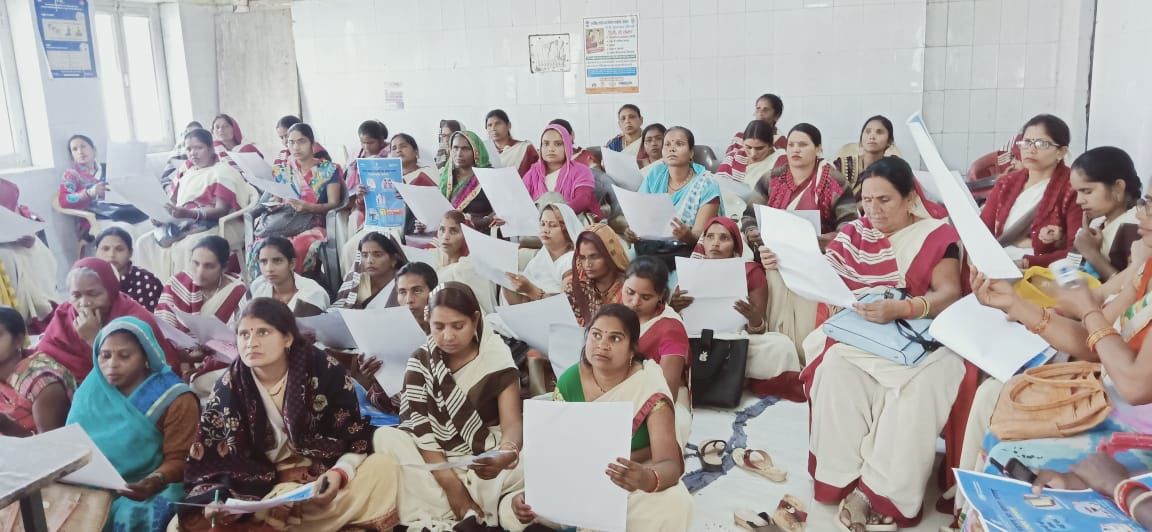
In reply to the question of how conscious the health department is for these ASHA workers, Dr KD Mishra, superintendent, Community Health Centre, Mall block, said: “The fear of Corona is more in cities while everything is normal at the village level. Every person need not wear masks. Due to the low availability of the masks, only the hospital staff is currently provided with them. Efforts are being made to provide masks even to ASHA sisters.”
In Uttar Pradesh, a communicable disease control campaign is scheduled between March 16 and April 3. As part of this, one ASHA worker is expected to visit 10-15 houses every day and giving information about cleanliness and Coronavirus to the villagers.
Bhasha Sharma, 40, is an ASHA worker who lives in Jodisa village of Ghatila block in East Singhbhum district of Jharkhand. Eighteen other ASHA workers work under her. “We can’t organize meetings until April 14, but ASHA workers still have to go door-to-door and do our job. We are still going to homes of people to take care of newborn children,” she said.
When asked whether they’ve got masks and sanitizers, Bhasha said: “No, we were not given anything like that. We have asked ASHA sisters to buy these things on their own. They usually wrap a scarf around and go to villages.”
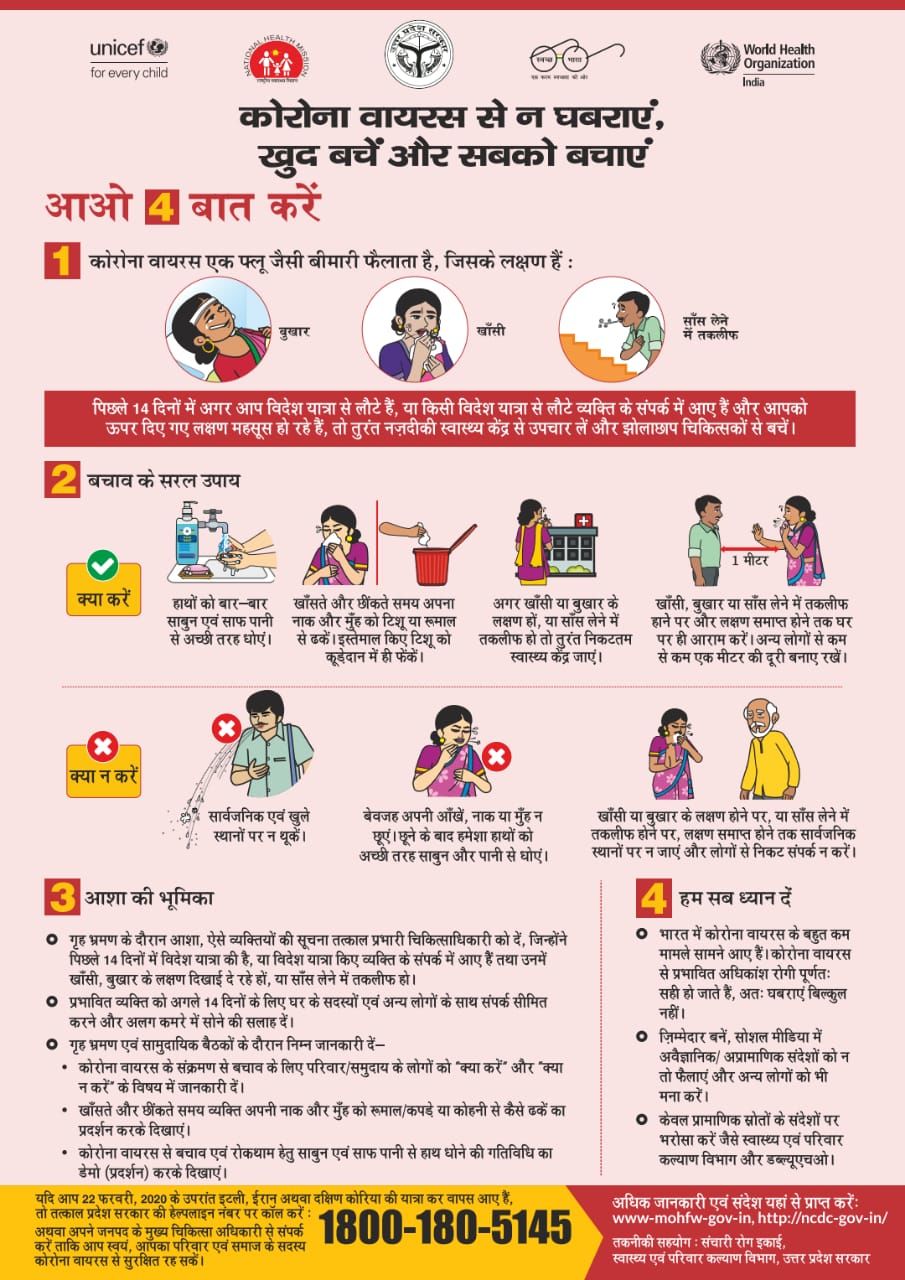
Does she not think that she should leave her job given the situation? “Not at all, we had joined this profession out of our will to serve. If we do not go, who will come to the village to inform them? It is just that it would have been good if there were good safety arrangements,” she said.
This is not the first occasion when the health department is ignoring the good of ASHA workers. The state governments have always failed to protect ASHA workers, whether it is their honorarium or hours of work, which has always been overlooked. They do not even have the status of government employees.
“The ASHAs have been told to talk to the people at a distance of one meter. We have not received any orders from the authorities that they should be given masks and sanitizers. But we have suggested them to buy with their money and do fieldwork only after putting it on,” Hakkim Pradhan, the East Singhbhum district Programme Coordinator, informed Gaon Connection. There are 2,129 ASHA workers in this district.
There is one ASHA worker for 1,000 people. This number goes up in villages having a large population. In some states, ASHA workers get a definite honorarium while in many places they are given incentives on the basis of their work. They do not get much honorarium befitting their responsibilities.
At the panchayat level, ASHA workers are monitored by an Auxiliary nurse midwife (ANMs). “We are protecting ourselves on our own. No facility has been given to us or ASHAs from the department,” says ANM Ram Datti Narrey, who is working at Jawaharlal Deshraj Hospital in Bhopal.
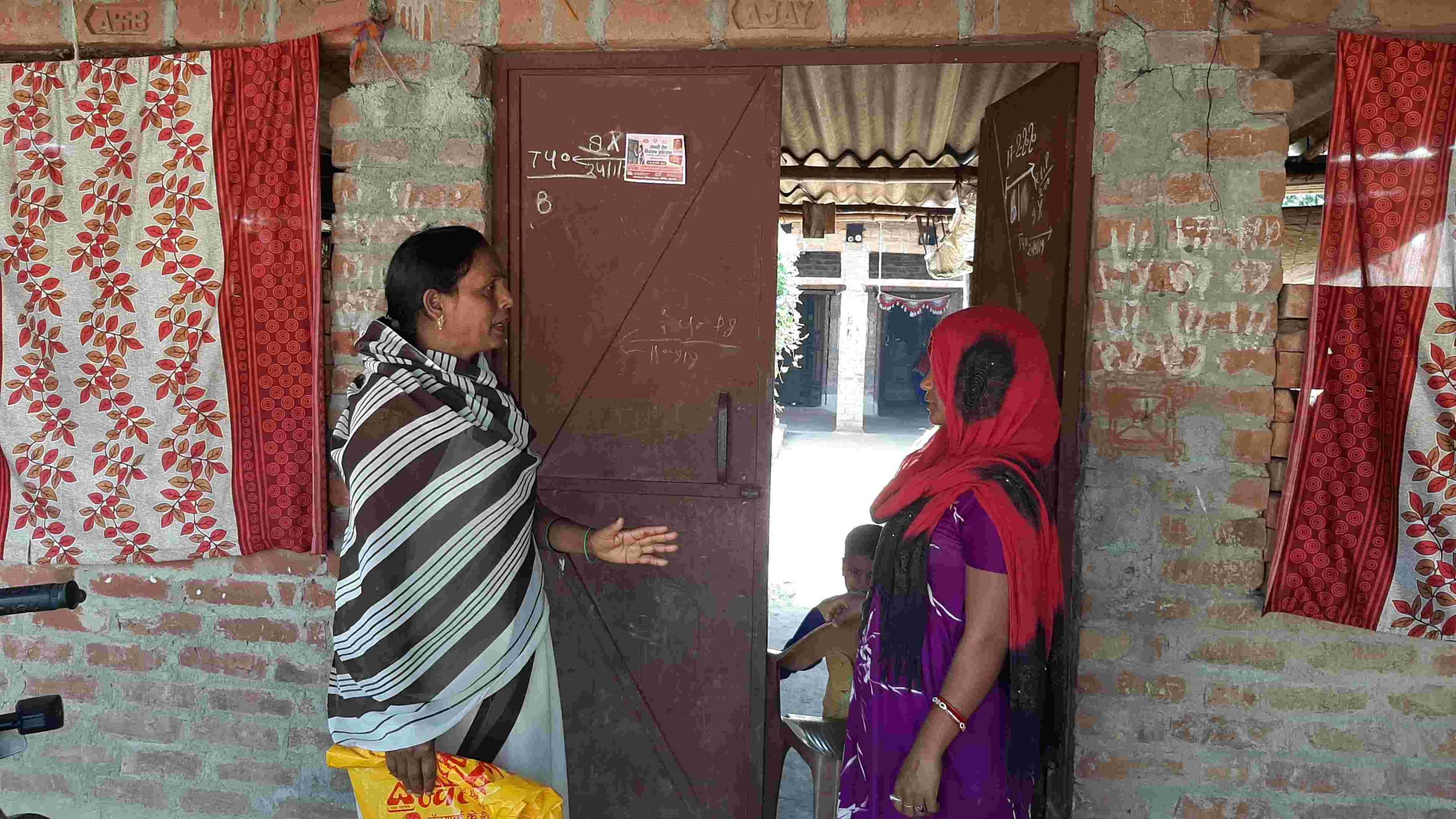
There are 250 ASHAs and 20 ASHA Facilitators under the supervision of block community mobilizer Rewa Shankar Ahirwar of Bhopal. He informed: “There is simply no parameter to protect the ASHAs, they should protect themselves. We no longer have masks left in the store. They tie up scarfs and also carry soap with them.”
These are the same ASHA workers through whom all the ambitious schemes of the health department reach every household in rural India. The health department is not serious about the safety of these ASHA sisters.
These ASHAs have to immediately inform the health department when a person from another state comes to the village. “Our district is adjacent to the Gaya district of Bihar. We have spoken to all the ASHA workers and told them if anybody is reported from outside, he has to be brought to the hospital immediately for investigation,” informed Uday Sharan Prasad District Programme Coordinator of Chatra district of Jharkhand.
In reply to what facilities have been given to these frontline workers in such a sensitive situation, Uday Sharan said: “We have not received any such order from the state government. But we have shared a video with these workers stating how to make masks from handkerchiefs. There are hoardings and flags placed in several locations. There are posters everywhere so that more and more people are aware.”

